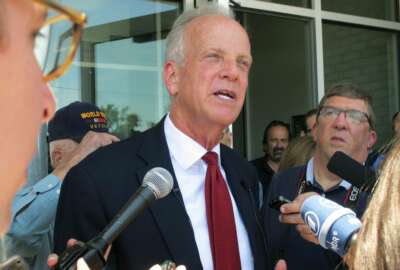

Senate lawmakers let a third set of amendments to be added to the Defense Authorization bill, including the Modernizing Government Technology Act.
The bill to give agencies access to much-needed money to modernize technology systems took a major step forward Sept. 18.
The Senate included the Modernizing Government Technology (MGT) Act as part of a third set of amendments to the Defense Authorization bill.
“In light of the numerous data security issues that continue to threaten our federal government and American businesses, I’m pleased the Senate acted to prioritize the modernization of our alarmingly outdated federal IT systems,” said Sen. Jerry Moran (R-Kan.), one of the main co-sponsors of the amendment, in a release. “The MGT Act is a critical step toward bringing our federal IT systems into the 21st century. The improved efficiencies included in the legislation will strengthen our cybersecurity capabilities and reduce long-term wasteful spending.”
The Senate passed the NDAA overwhelmingly 89-8 Monday night.
The bill now goes to conference committee, where the House and Senate will iron out the differences in their respective versions of the defense bill, including the MGT Act, which wasn’t included in the lower chamber’s version of the NDAA.
“The federal government currently spends over $80 billion on IT, but 75 percent of that money goes to maintaining old and out of date legacy systems. With the MGT Act’s flexible funding options, we can break that cycle and bring the federal government into the modern era — tackling dangerous cyber vulnerabilities and protecting the American people from increasingly severe cyberattacks, and empowering agencies to move forward with long-overdue projects to streamline how the federal government operates,” said Sen. Tom Udall (D-N.M.) in a release.
Rep. Will Hurd (R-Texas), chairman of the Oversight and Government Reform Subcommittee on IT and one of the co-authors of the bill, has garnered strong support for the MGT Act from House leadership.
Rep. Kevin McCarthy (R-Calif.), the majority leader, said in a release that the bill is a major step forward to create a cost-efficient and digitally secure government.
“By leveraging new technologies, we will save taxpayers money and deliver a well-overdue update to our nation’s IT systems,” he said. “Rep. Will Hurd has been relentless in his work on this innovative policy solution that will benefit all Americans.”
The MGT Act seemed destined to make the NDAA last week, but the time it took to get agreement among Senate overseers and appropriators and the administration caused the NDAA window to tighten.
Members of the Senate Homeland Security and Governmental Affairs and Appropriations committees were not sold on the MGT Act initially. Both committee lawmakers were concerned about creating working capital funds at each agency.
But since the House passed the MGT Act in May, Moran, Udall, Hurd and others tweaked the bill and convinced the senators to add it to the NDAA as the path to passage.
Copyright © 2025 Federal News Network. All rights reserved. This website is not intended for users located within the European Economic Area.
Jason Miller is executive editor of Federal News Network and directs news coverage on the people, policy and programs of the federal government.
Follow @jmillerWFED



